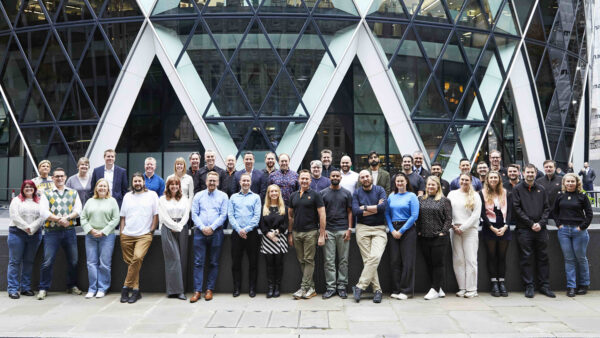
Experts in construction and engineering from UK law firm, Womble Bond Dickinson, have called upon employers to wake up to the potential of T levels to support new talent into Modern Methods of Construction (MMC).
T levels, which were co-created by the government and more than 250 employers, including Fujitsu and Amazon, are two-year vocational qualifications equivalent to three A levels. Combining classroom study with industry placements, the qualifications align with the government’s strategy to build back better.

T levels have already secured substantial government investment. In August 2020, it pledged to invest £50m in colleges, schools and sixth forms delivering T levels across England from 2022 in a bid to improve and expand teaching spaces and facilities for these qualifications. In the government’s autumn Budget last month, chancellor Rishi Sunak added to this with the announcement of new £1.6bn funding for T levels.
As an industry-led qualification, T levels have the potential to pioneer training in new disciplines and technologies, and as such they can play a key role in the global shift to sustainability. T levels were specifically designed with the evolution of industries in mind, and this is especially true in construction.
Specific initiatives have been implemented within T levels that can be used to promote MMC, including the introduction of the new T level in Design Surveying and Planning from the Transforming Construction Programme and Homes England’s Accelerated Construction Programme.
MMC has been hailed as a way to address the UK’s housing crisis, level up communities around the country and provide sustainable construction solutions. As the construction sector is experiencing one of its largest skills shortages in recent history, the issue of how to attract and nurture talent to this evolving industry sits heavy on the shoulders of government and business leaders alike.
Construction dropped out of the top 10 career choices for people aged 22-29 in 2018 and is continuing to decline rapidly for reasons we are all aware of, such as undesirable working conditions and a lack of diversity in the profession.

“With the backing of T levels in the autumn Budget, I hope that it signals to employers that it’s time to embrace a new generation of potential recruits who have cut their teeth on T levels.”
Research has found, however, that many young people are motivated by a desire to make a difference to the planet – a global survey of young people aged 15-24 from Plan International has found that 98% of respondents were concerned about climate change. In the wake of COP26, leaders in all sectors are looking for ways to go green. MMC represents an opportunity for workers to make a tangible change and work towards net zero targets.
Another benefit of MMC as an evolving part of the construction sector is that it is a chance to shake off preconceived views of careers and demonstrate the varied paths, with digital, data and non-manual roles. Technically-able workers who can work with raw materials, build structures and deliver onsite projects will still be at the heart of skills needs, but MMC opens the door to more designers, project management teams and digital architects, MMC innovators and those who will help build adoption for a UK market.
Before MMC can spearhead the revitalisation of the UK construction industry, the significant skills gap facing the sector must first be bridged. The answer may lie within technical education – specifically a relatively new qualification that has the potential to equip the MMC workforce of the future.
The industry’s view of T levels
As the new kid on the block, what does the sector think about T Levels?
Sarah Wales-Canning, associate in the construction and engineering team at law firm Womble Bond Dickinson, says: “We’re in the middle of a drastic skills shortage and one which doesn’t look set to improve any time soon. A huge number of construction workers are nearing retirement, without the pipeline to replace them. The construction sector has long been in need of a rebrand to attract new talent.
“With younger people becoming more aware of climate change, they need to feel empowered and find careers that align with their values. With the backing of T levels in the autumn Budget, I hope that it signals to employers that it’s time to embrace a new generation of potential recruits who have cut their teeth on T levels.
“To make a success of them and to turn the interest in construction on its head, a collaborative effort across education and construction is needed to make these qualifications, and the sector, desirable for students. That starts by raising awareness of MMC across the board.”
This article has been created by Construction Manager in partnership with Womble Bond Dickinson.
For more information on Womble Bond Dickinson’s rebuild Britain campaign, visit www.womblebonddickinson.com/rebuild-britain











